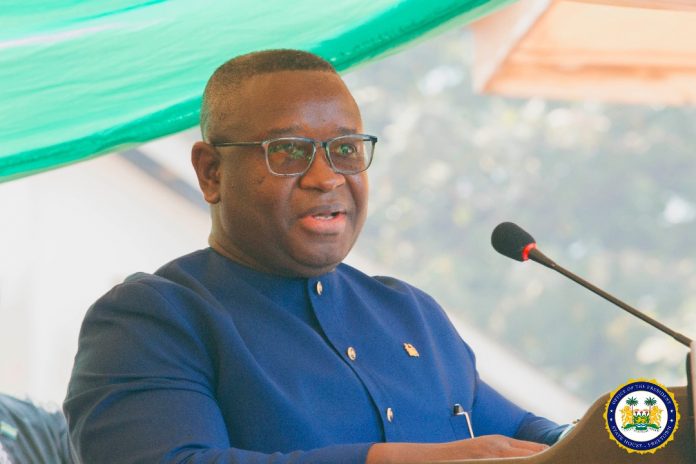By Amin Kef Sesay
Poor, developing countries like Sierra Leone with weak export industries continue to be hit hard by financial and economic crisis identified in weakened national currencies and huge foreign exchange scarcity.
The crisis is worsened primarily by poor international balance of trade figures and financial outflows by the class that controls the business sector, forcing millions to remain in poverty. As such, attainment of the Millennium Development Goals, and now the SGDs is seriously jeopardized in countries like Sierra Leone that are yet to put their economies on a sound footing for robust diversified growth and expansion like Singapore, Hong Kong, Taiwan and the Asian Tiger countries have in the last fifty years succeeded to do admirably.
Poor developing countries like ours do not have the financial and resources required to stimulate the economy and protect our socially disadvantaged populations, even though considerable efforts were made by the former Government and continue to be done by this one to mitigate the effects.
What our Government now has to grapple with definitely defies its strength. What makes our situation very desperate is that unlike the previous decades, the developed countries are for the most part more concerned with their own problems. Thus their readiness to provide more extensive aid is limited.
We are in what one economist called the “phase of heightened instability”. The high growth rates registered by the Ernest Koroma Government have long since disappeared and we now have to face shrinking economic production. To make matters worse, the corona virus from nowhere has come to badly affect the economies of China, Asia, Europe and the United States.
Macro-economically the crisis manifests itself in mounting deficits in trade and payment balances, dwindling currency reserves, currency devaluation, increasing rates of inflation, higher indebtedness and soaring public budget deficits. This had a direct impact on the living conditions of the population – those who survive on the equivalent of USD 1 per day.
The imbalance is mounting. Far more people of both sexes are out of work than in employment. This means that achievement of the SDGs is fading into the distance.
Despite the Government’s attempts, we still have a clearly lower financial-political scope for stimulation programs and social measures to protect the poorest. Higher bilateral aid and liquidity aid from the international financing institutions could significantly expand the range of options.
Considerable international currency reserves to call on and high fiscal deficits leave the Government with little room for increased expenditure. Consequently, the emphasis must be on monetary measures, in particular facilitating credit access options for producers. However, we have to consider that money policy measures are strictly limited because easement in interest policy impacts the exchange rate of the currency and the rate of inflation. Thus, maybe in dealing with the foreign exchange crisis, the Government can as one option consider introducing selective trade restrictions on non-essential luxury goods.
There is no two ways about it – this Government cannot go far with its development ambition without access to sufficient financial resources. President Bio’s problem as such has to do with the question of the reform of the financial system, acquisition of additional liquidity, control and regulation of the market and the specific competences of a wide range of state institutions responsible for market control and economic stimulation.
In this regard, we need greater and deepened dialogue with the primary actors for development policy, i.e., the UN, the Bretton Woods institutions, the EU and the regional development banks and certain of their special organizations.




